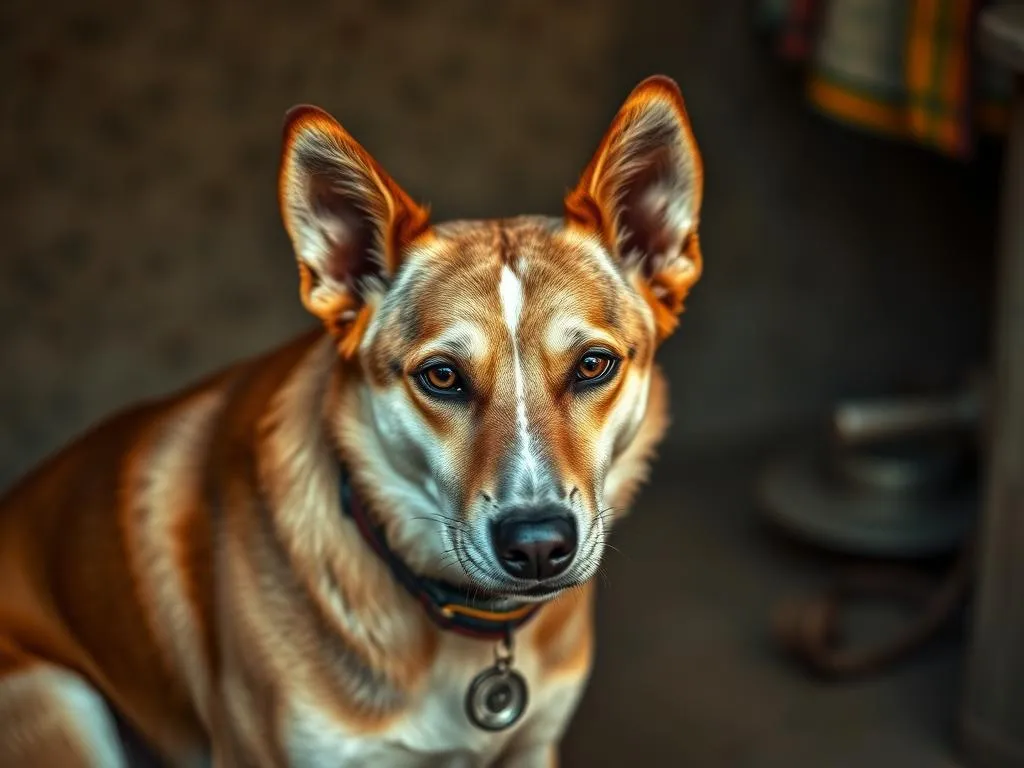
Dogs have played a significant role in Indian culture history, serving as companions, protectors, and even symbols of spirituality and loyalty. Their presence can be traced back to ancient texts and has evolved through various cultural perceptions across the subcontinent. This exploration delves into the multifaceted relationship between dogs and Indian society, revealing how they have been woven into the fabric of Indian life over the centuries.
Historical Context
Ancient References
The historical significance of dogs in Indian culture can be traced back to ancient texts like the Vedas and Puranas. These scriptures not only mention dogs but also regard them with reverence. For instance, in the Rigveda, dogs are referred to as guardians of the afterlife, showcasing their essential role in spiritual beliefs. The text describes dogs as the “two four-eyed dogs of Yama,” the god of death, who guide souls to the afterlife. This connection places dogs in a position of honor, aligning them with the sacred.
In addition to religious texts, dogs have a prominent place in Indian mythology and folklore. Numerous stories highlight the loyalty and bravery of dogs. One such legend is that of the dog Bhairava, who devoted himself to Lord Shiva. This narrative emphasizes the deep-rooted values of fidelity and companionship that dogs symbolize in Indian culture.
Dogs in Indian Art and Literature
The representation of dogs is also evident in ancient Indian art. Sculptures and paintings from various eras depict dogs alongside their human counterparts, often illustrating the bond between them. For example, the famous sculptures of the Gupta period showcase dogs in various poses, emphasizing their role in daily life and their importance as companions.
Classical literature further enriches the narrative surrounding dogs. Works like the Mahabharata and Ramayana feature dogs, reflecting their roles as loyal companions and protectors. The character of Shabala, a celestial cow that helps guide the hero, often has a dog companion, illustrating the close-knit relationships between humans and dogs even in mythological narratives.
Cultural Significance
Symbolism of Dogs in Indian Culture
In the broader context of Indian culture, dogs symbolize loyalty, companionship, and protection. Their unwavering fidelity is celebrated in numerous tales and traditions. In many rural communities, dogs are viewed as guardians of the home, serving not just as pets but as protectors of property and livestock.
Furthermore, dogs hold significant associations with various deities. For instance, in Hinduism, the dog is often linked to Bhairava, a manifestation of Lord Shiva. This connection imbues dogs with a sacred status, making them revered figures in certain rituals and celebrations.
Regional Variations
The perception and treatment of dogs vary widely across India, reflecting its diverse cultural landscape. In states like Punjab and Haryana, dogs are often treated with great affection and are considered integral family members. Conversely, in certain regions, dogs may face neglect and mistreatment, indicating a disparity in cultural attitudes.
Specific breeds also carry unique cultural significance in different areas. The Indian Pariah Dog, known for its resilience and adaptability, is celebrated in many rural communities. In contrast, breeds like the Lhasa Apso are cherished in households for their beauty and companionship, highlighting how different regions value distinct traits in dogs.
Dogs in Indian Religion
Hinduism
In Hinduism, the role of dogs extends beyond companionship to encompass spiritual dimensions. Dogs are often included in festivals, particularly during Dhanteras. On this day, it is customary to feed and care for dogs, reflecting the belief that they are sacred beings deserving of respect and kindness.
The significance of dogs in the context of Yama, the god of death, cannot be overstated. It is believed that honoring dogs ensures a peaceful passage to the afterlife. This belief fosters a culture of respect and compassion towards dogs, influenced by religious teachings.
Buddhism and Jainism
Buddhism and Jainism also feature dogs prominently in their teachings. In Buddhist texts, dogs are recognized for their loyalty and companionship, often serving as metaphors for human virtues. Compassion towards animals is a cornerstone of Jain philosophy, which advocates for the protection of all living beings, including dogs. This religious perspective reinforces the notion that every creature deserves kindness and respect, further enhancing the cultural significance of dogs in Indian culture.
Dogs in Contemporary Indian Society
Urban vs. Rural Perspectives
The treatment and perception of dogs in contemporary India reveal a stark contrast between urban and rural settings. In urban areas, pet ownership has surged, leading to a flourishing pet industry. Dogs are increasingly seen as family members, with pet parents investing in their well-being through specialized diets, grooming, and healthcare. The rise of dog cafés and pet-friendly spaces in cities reflects changing attitudes towards dogs, promoting a culture of acceptance and love.
Conversely, in rural areas, dogs often fulfill utilitarian roles as guardians and helpers. While they may not receive the same level of pampering as urban pets, they are respected and valued for their contributions to the household. Anecdotes from rural communities illustrate this bond, showcasing how dogs are integral to daily life, assisting in herding and guarding livestock.
Changing Attitudes
Globalization and modernization have influenced attitudes towards dogs in India. The influx of Western pet culture has encouraged a shift in the perception of dogs from mere working animals to beloved companions. This transformation has led to increased awareness of animal rights and welfare issues, with more individuals advocating for responsible pet ownership.
The rise of social media has also played a pivotal role in changing perceptions. Platforms like Instagram and Facebook are filled with heartwarming stories of dog adoption and rescue, inspiring many to consider dogs as part of their families. This cultural shift has resulted in greater advocacy for dog welfare, promoting a sense of responsibility towards these loyal companions.
Dog Welfare and Rights
Animal Rights Organizations
India is home to numerous animal rights organizations dedicated to the welfare of dogs. Groups like the People for Animals and The Blue Cross of India work tirelessly to advocate for the rights of dogs, fighting against cruelty and neglect. These organizations engage in rescue operations, rehabilitation, and public awareness campaigns, emphasizing the need for responsible pet ownership and humane treatment of stray dogs.
Through educational programs, these groups have made significant strides in changing public attitudes towards dog welfare. Their efforts have sparked discussions on the importance of spaying and neutering, responsible breeding, and the ethical treatment of animals, contributing to a more compassionate society.
Challenges Facing Dogs in India
Despite progress, challenges remain in addressing the stray dog population in India. Stray dogs often face dire conditions, including malnutrition, illness, and neglect. The complexities surrounding stray dog management, including public health concerns and cultural attitudes towards stray animals, complicate the situation.
Legal protections for dogs exist, but enforcement remains a significant challenge. While laws against animal cruelty are in place, many cases go unreported or unresolved. Advocacy organizations continue to push for stronger legal frameworks and better enforcement mechanisms to protect dogs and ensure their rights are upheld.
Conclusion
The significance of dogs in Indian culture history is profound and multifaceted. From ancient texts to contemporary society, dogs have been cherished companions, spiritual symbols, and protectors. As attitudes evolve and modern challenges arise, the relationship between humans and dogs in India continues to transform. Acknowledging this bond is essential for fostering a more compassionate society, where the welfare and rights of dogs are prioritized and celebrated. The journey of dogs in India reflects not only their loyalty but also the capacity for humans to grow in understanding and empathy towards all living beings.









